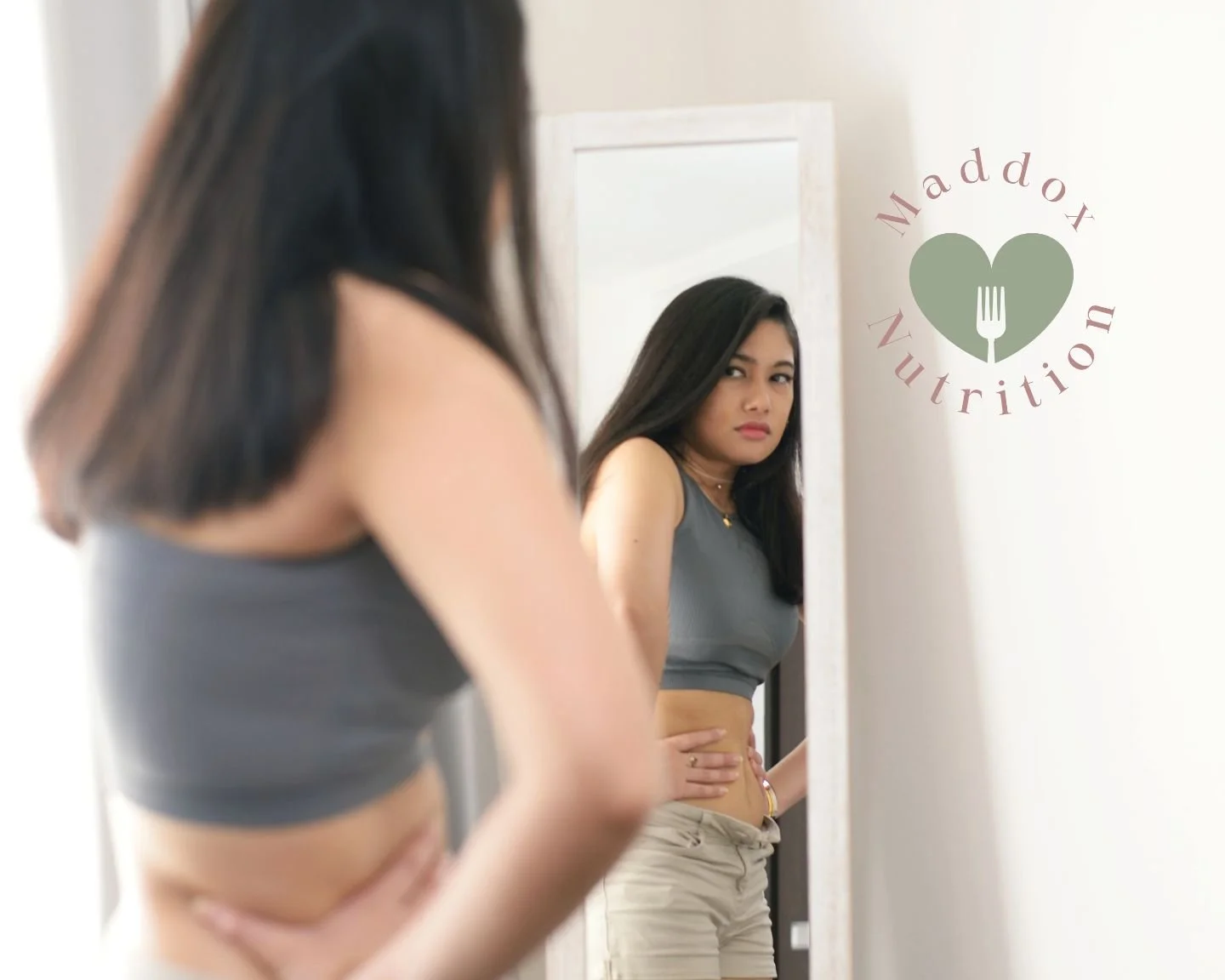What is Body Image? Understanding the Way We See, Feel, and Think About Our Bodies
Too many people spend their lives stuck in a silent war with their bodies. You might second-guess how you look every time you pass a mirror, criticize yourself in photos, or feel like your self-worth depends on your weight, size, or shape.
These thoughts aren’t just passing moments, they can deeply affect your mood, relationships, and confidence.
If this feels familiar, you’re not alone.
The way you experience your body is shaped over time by what you’ve been told, what you’ve seen, and how you’ve been treated. Understanding this relationship is the first step toward changing it.
Before you can heal it, you need to know what body image really is before you can shift the way you relate to it.
What is body image, really?
What is body image? It’s your own personal picture of your body and how you see it, how you think about it, how you feel in it, and how those thoughts and feelings influence your behavior.
Body image is formed through lived experiences, internal beliefs, and external messages.
There are four main components of body image:
Perceptual – How you see your body
Cognitive – What you think about your body
Affective – How you feel about your body
Behavioral – How you act based on those thoughts and feelings
Your body image begins forming early in life. It’s shaped by things like family comments, peer pressure, media exposure, fitness culture, and personal experiences in your body.
Over time, this becomes a mental blueprint you carry around, even if it’s inaccurate or unkind.
Signs of a negative body image
You may not always recognize that you’re struggling with body image issues. At Maddox Nutrition, we ask every new client about body image because how they feel about their body often connects with how they feel about food. Many of my clients don’t use the term “negative body image,” but they describe the thoughts and behaviors that signal it.
If you often feel uncomfortable in your body or believe your appearance needs to change before you're allowed to feel good, these are signs worth paying attention to.
Constant body checking or body comparison
You might catch yourself looking in the mirror every time you pass one not out of vanity, but out of hyper-vigilance.
Maybe you lift your shirt to check your stomach, pinch the skin on your arms, or zoom in on unflattering angles in photos. These habits can feel automatic, even addictive. They’re fueled by the hope that maybe this time you’ll see something better or the fear that things have gotten worse.
Scrolling through social media may become another form of self-surveillance. You compare your body to influencers, friends, or even strangers, and you always seem to come up short.
Distorted perception of your appearance
A common sign of poor body image is believing your body looks worse than it actually does. Again, you might fixate on perceived flaws on your stomach, thighs, arms even when others don’t notice anything “wrong.”
These distortions aren't vanity; they’re deeply rooted insecurities that alter how you see yourself. Depending on the frequency and severity, this may be diagnosed by a doctor or mental health professional as body dysmorphic disorder.
Feeling ashamed of or disgusted by your body
You might avoid certain clothes, places, or situations because you don’t want your body to be seen.
Maybe you hide under oversized clothes, skip out on beach days, or turn down invitations where you might feel “on display.”
That voice in your head says things like, “You can’t wear that,” or “Everyone will be staring at how much weight you’ve gained.”
Feeling physically uncomfortable in your body or using disgust as self-talk is a clear red flag.
Linking your worth to appearance
You might not say it out loud, but the belief lingers:
“I’ll be more lovable, confident, or successful once I fix my body.”
This thought quietly governs how you live. You delay joy, you skip the trip, the date, the photo, the party all because you don’t think you deserve those things in your current body.
What does a healthy or neutral body image look like?
A healthy body image doesn’t mean you love how you look every day. That’s unrealistic and unnecessary.
Examples of a healthier body image include:
Wearing clothes that feel comfortable without obsessing about how they “look”
Moving your body for energy, not for punishment
Speaking to yourself with kindness, especially on tough days
Seeing your body as a vehicle for life, not an ornament for others
You can still have hard days and practice body acceptance.
Progress, not perfection, matters most.
Tips to improve your body image and build body respect
Working on your body image is about reworking the way you think, react, and relate to your physical self.
Here are some evidence-informed, realistic steps you can take.
Practice body neutrality over body positivity
Telling yourself to love your body every day can feel fake, especially if you're used to being at war with it.
Instead, aim for body neutrality. Say things like: “My legs helped me get through today,” or, “This body lets me show up for the people I love.”
Let appreciation replace aesthetic pressure.
Unfollow triggering accounts and diversify your social feed
What you see everyday shapes how you feel. Social media is filled with filtered, edited, and idealized bodies.
Curate your feed so it includes different shapes, sizes, abilities, races, and styles. Seeing diverse bodies helps retrain your brain to accept your own.
Focus on body functionality, not appearance
Shift your attention to what your body can do, not what it looks like. Maybe you carried groceries, hugged your child, danced with friends, or simply made it through a hard day. These small wins are worthy of recognition.
Your body is more than a visual object.
Speak to yourself the way you would to a friend
Would you tell a friend, “You’re disgusting, you look awful in that”? Probably not. But you might say it to yourself. Practice interrupting those thoughts.
Replace them with neutral or kind phrases, like:
“This is hard, and I’m doing my best,” or “I’m allowed to feel uncomfortable without attacking myself.”
Seek professional support when body image interferes with daily life
There’s no shame in asking for help. If body image struggles are impacting your eating habits, mood, or ability to enjoy life, it may be time to reach out.
Therapists, registered dietitians, and body image specialists can provide guidance rooted in compassion and evidence not quick fixes or appearance-based solutions.
What is body image? Redefine it in a positive perspective
What is body image? It is an ongoing relationship shaped by your experiences, your beliefs, and the world around you.
Understanding what body image is gives you the power to notice unhealthy patterns and reframe and replace them.
You don’t need to love your body every minute to live a meaningful life. But you can choose respect, care, and small daily practices that lead to peace.
—
What you need to know
The difference between a Dietitian and Nutritionist
A dietitian is a regulated healthcare professional who has completed formal education in nutrition and dietetics, undergone supervised training, and is licensed to provide medical nutrition therapy for conditions such as diabetes, eating disorders, or gastrointestinal issues.
The title “dietitian” is legally protected in many countries, ensuring that only those who meet strict professional standards can use it.
In contrast, the title “nutritionist” is not always regulated, meaning anyone can call themselves a nutritionist regardless of training, though some may hold advanced degrees or certifications. Generally, dietitians are qualified to offer clinical nutrition care, while nutritionists often focus on general wellness and healthy lifestyle guidance.

